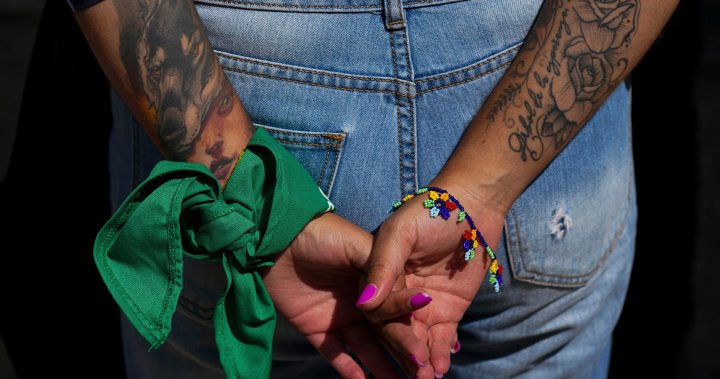
Risk of losing abortion access can be stressful, experts say. Here’s how to cope
Global News
Expert says when dealing with mental health issues that caused by social issues, both receiving support from communities and caring for others could help ease the pain.
Losing or potentially losing access to abortion could be distressing for many. Jessica Shaw, an assistant professor of social work at the University of Calgary, says the overturn of Roe v. Wade in the U.S. has impacted not only those living in America but also people in Canada and others around the world.
“Most people are feeling shock, sadness, anger, fear. And those are all valid feelings when we see another country, almost in its entirety, has cut off access to abortion rights,” she said.
In June, the U.S. Supreme Court overturned the landmark ruling of Roe v. Wade, which ended constitutional rights to abortion in the country.
Across the globe, there are 24 countries that prohibit abortion. There are 42 countries that only permit abortion when the woman’s life is at risk, according to the Centre for Reproductive Rights.
Rebecca Rudolph describes the overturn of Roe v. Wade as a “roller coaster of an experience” for her.
Rudolph is a 27-year-old woman who lives in the conservative-leaning state of Indiana. On July 8, a federal judge removed an injunction in Indiana, resulting in the restriction of second-trimester abortion in the state.
“We all just felt so betrayed, scared and angry,” said Rudolph. “It was like entering a really dark era. It was hard.”
Rudolph said although she recently started reaching out to her local community for emotional support, on some days she still “can’t believe this is happening.”










